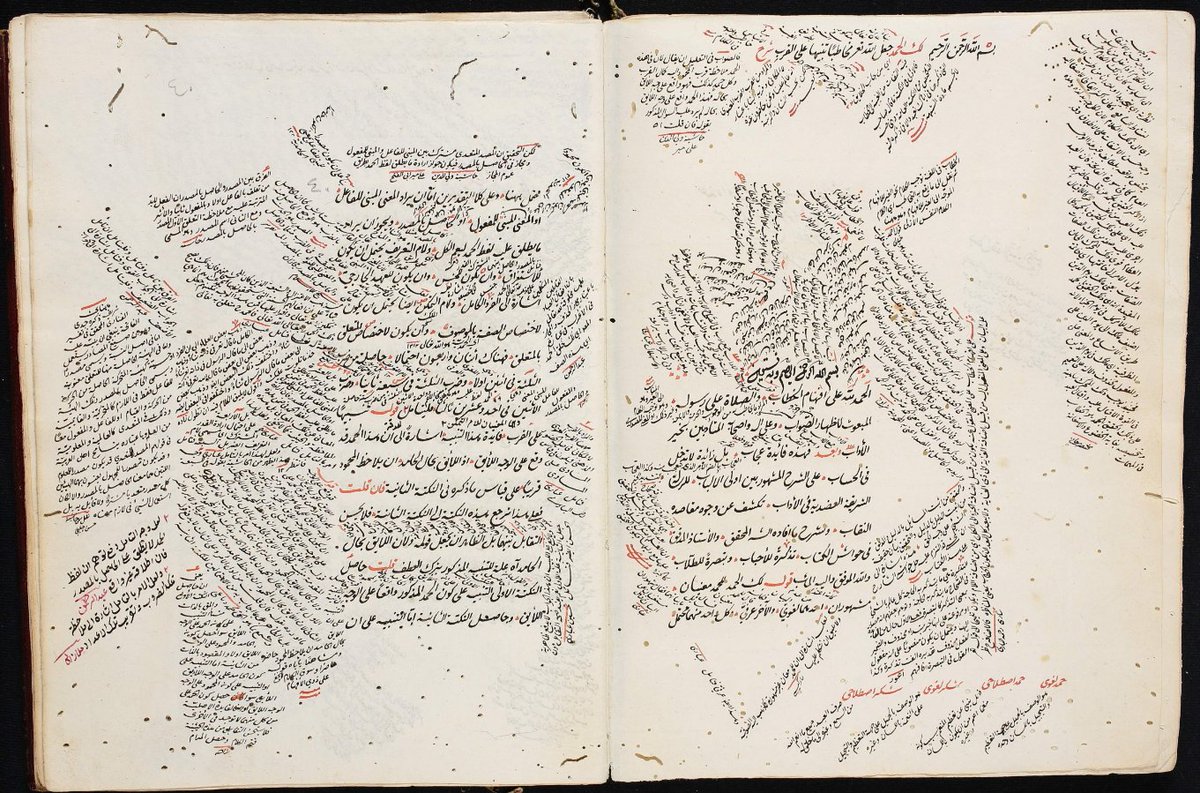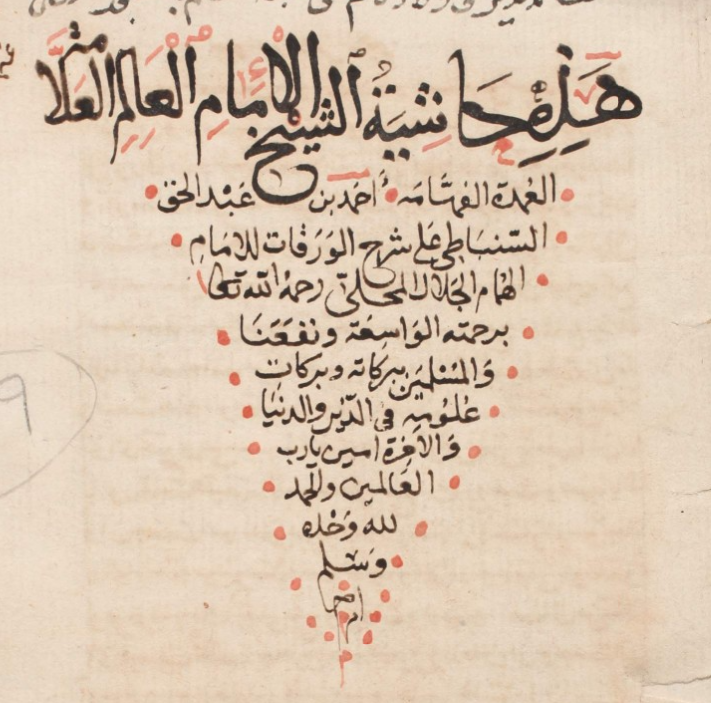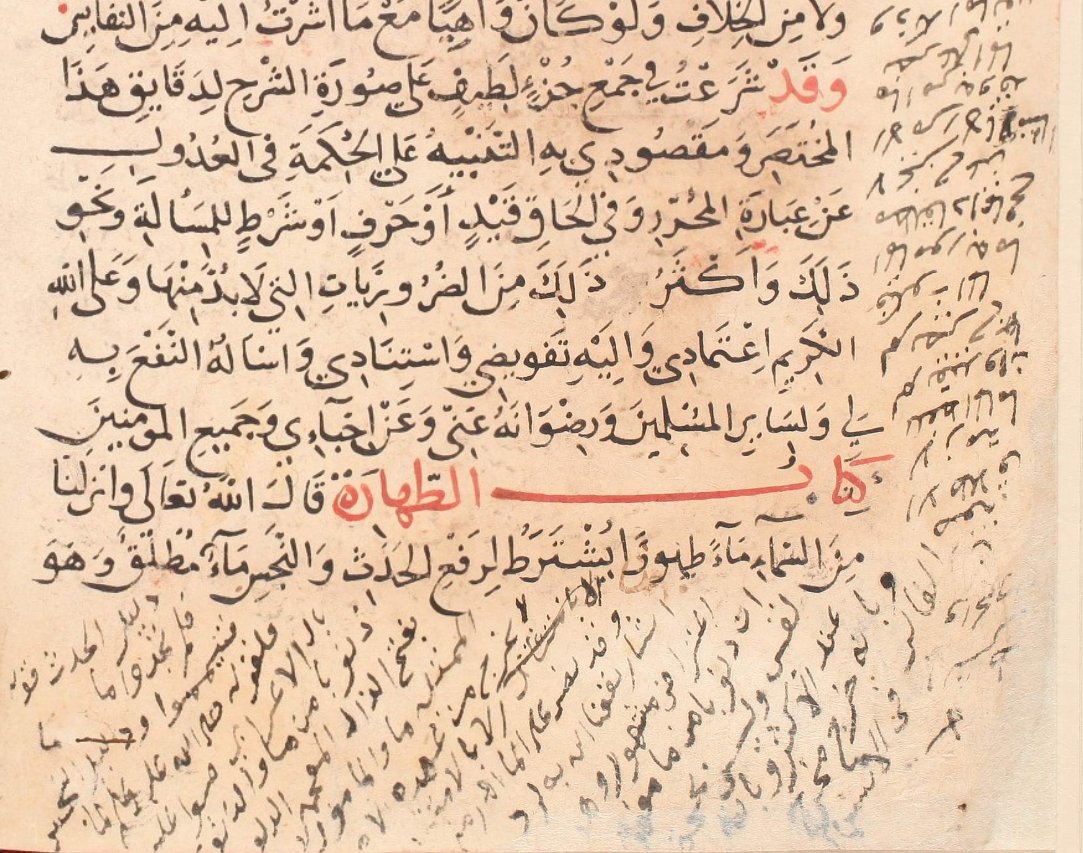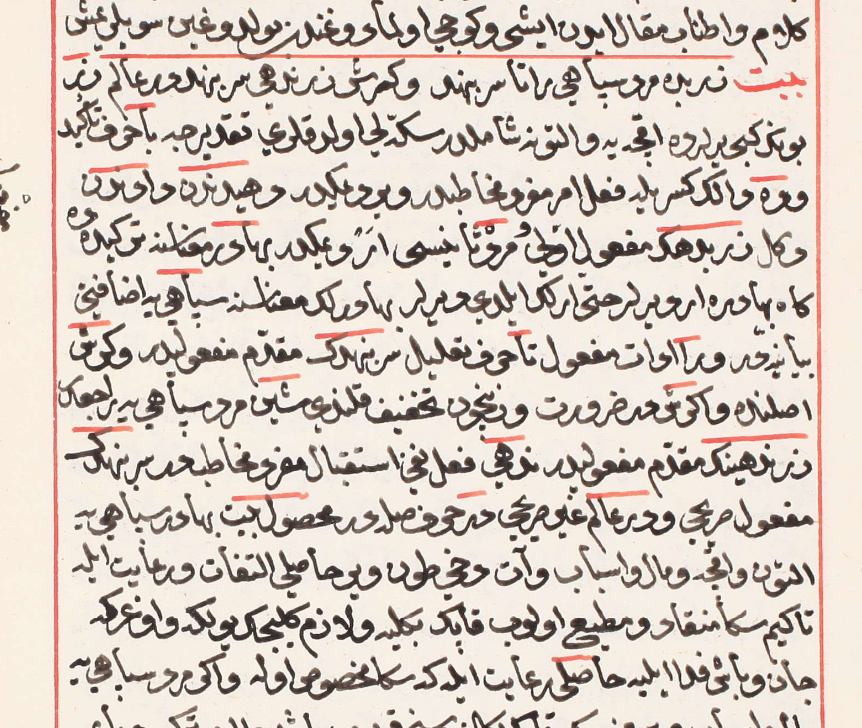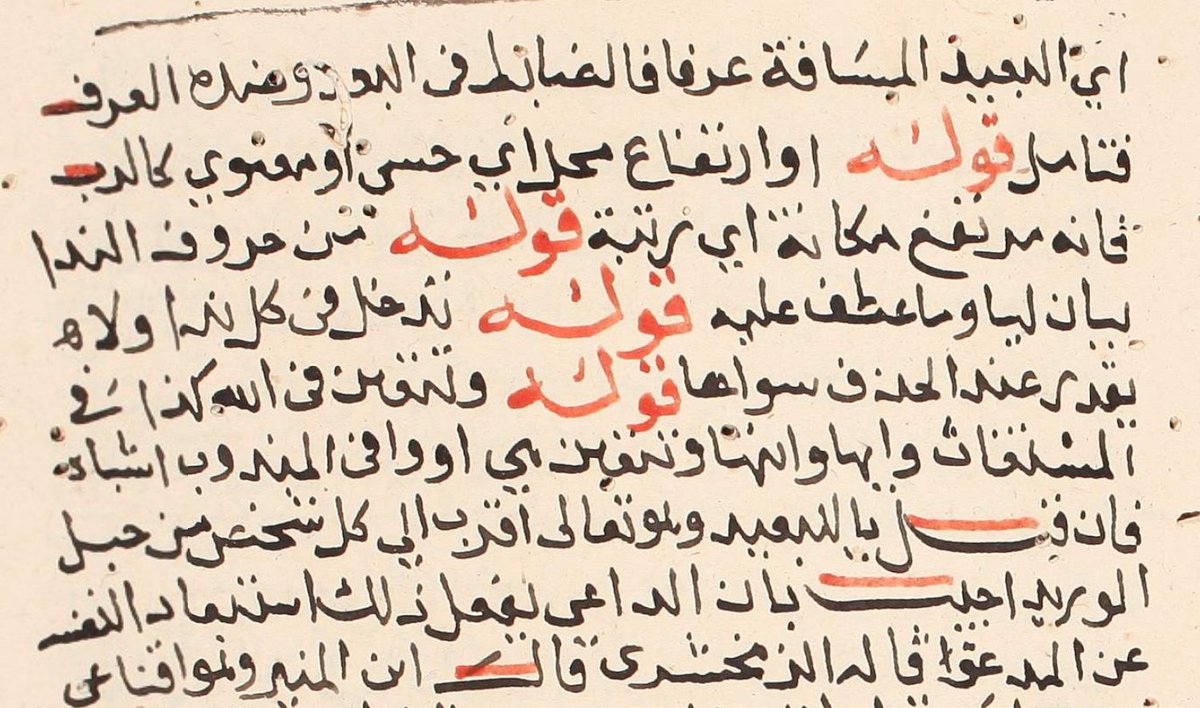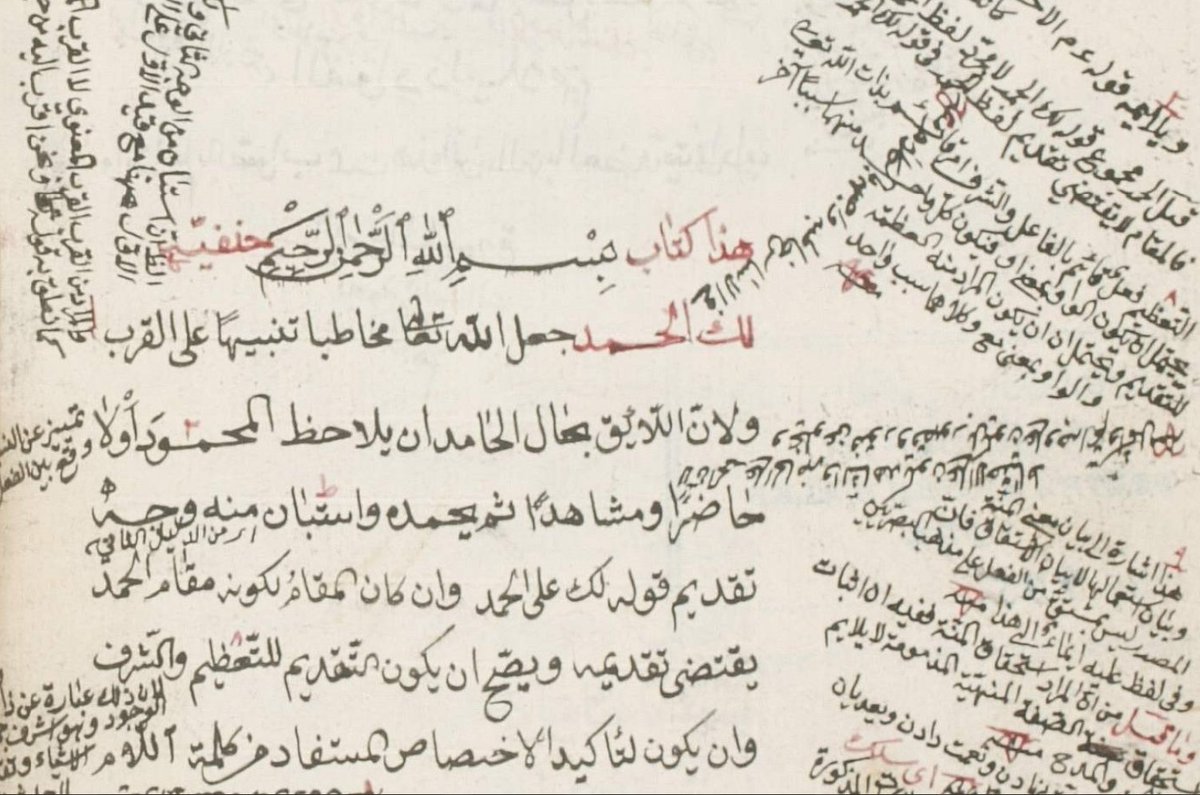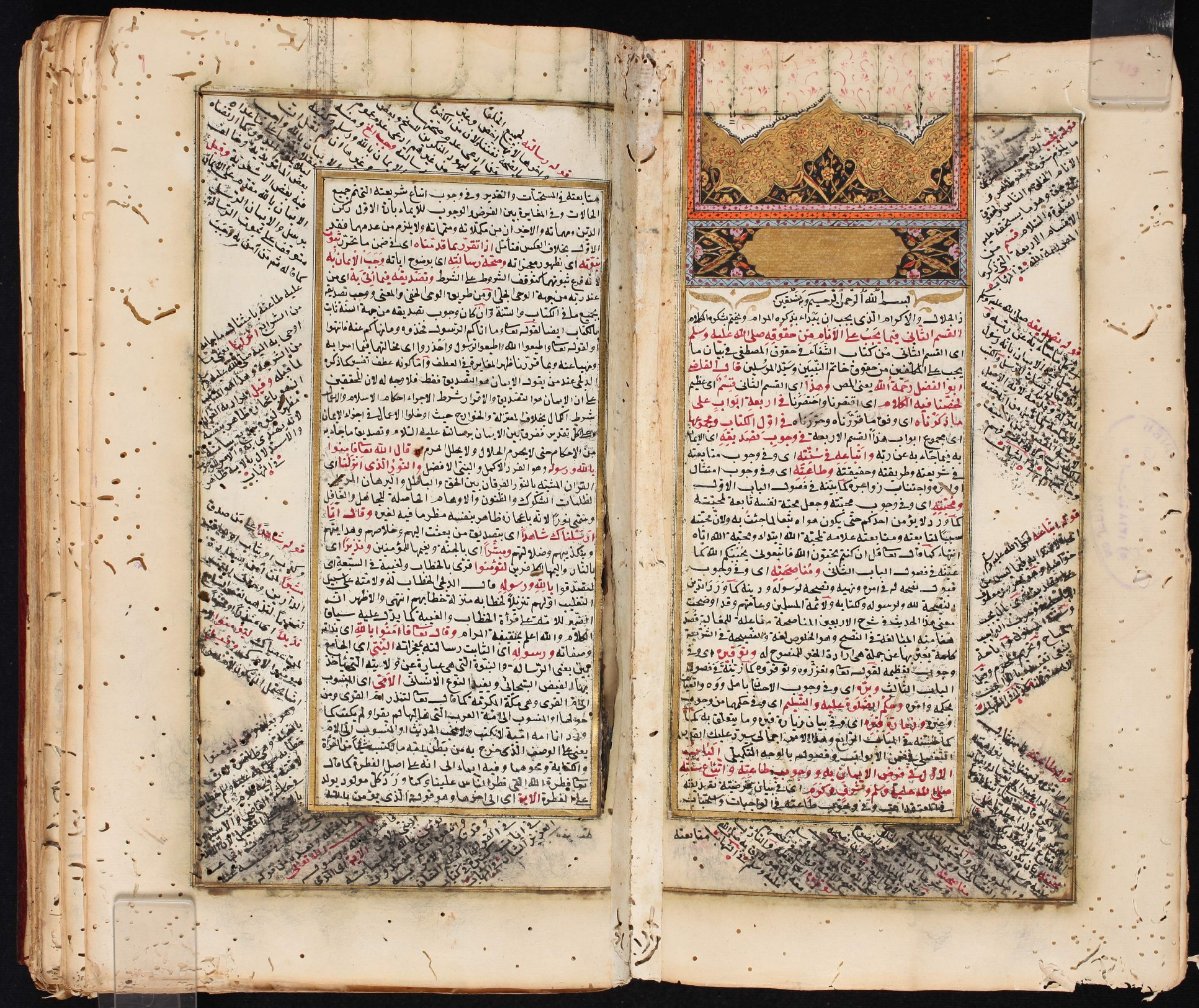One key element of the Islamic intellectual tradition is the commentary. Commentaries on the Qurʼan (tafsīr) began early in Islamic history, but from about the 12th or 13th century, well into the 19th, commentaries on other scholarly texts became extremely common. -jm
Usually a commentary is called a sharḥ, and a supercommentary (i.e. a commentary on a commentary) is called a ḥāshiyah. Sometimes you get all the way up to a fourth- or fifth-level supercommentary. -jm
Sometimes it's hard to even tell what the "core text" is, because even a very famous text that's the core of many commentaries might present itself as an abridgement or comment on something even earlier. -jm
Commentaries might serve multiple purposes: to explain obscure grammar or vocabulary, to dig into particular legal cases, etc. Even to show why the core text is wrong. Eventually you get some Ottoman Turkish commentaries that translate Persian poems and then comment on them. -jm
Authors of commentaries often mark quotes from the core text by key words like "qawluhu" ("what he said") and manuscripts often emphasize this by writing these words in red or putting a line over the quoted text, so you can figure out who is talking. -jm
Readers might add their own comments in the margins, and sometimes their students will later collect their marginal notes into a new commentary and edit it for publication. -jm
And then you have situations like this, where the scribe copies their own commentary in professional, elaborate style in the margin. -jm
A lot of Western scholars historically have dismissed this phase of Islamic scholarship because it's not "original," but I think it raises interesting questions about the way that scholars position ourselves in a tradition. This goes beyond just citing sources! -jm
Combine the commentary tradition with the sort of dynamic manuscripts that I discussed here ( https://twitter.com/Tweetistorian/status/1349161236160679936?s=20) and you see how these scholars are making their place in a scholarly lineage abundantly clear. -jm
Not trying to bring back the supercommentary, but it's interesting to think about a world where you can do good scholarship without trying to be the first person who thought of everything and instead show explicitly (visually!) how you're interacting with your predecessors. -jm
Manuscripts in this thread: https://w3id.org/vhmml/readingRoom/view/519381; https://w3id.org/vhmml/readingRoom/view/133378; https://w3id.org/vhmml/readingRoom/view/509518; https://w3id.org/vhmml/readingRoom/view/510319; https://w3id.org/vhmml/readingRoom/view/509795; https://w3id.org/vhmml/readingRoom/view/501553; https://w3id.org/vhmml/readingRoom/view/509759

 Read on Twitter
Read on Twitter